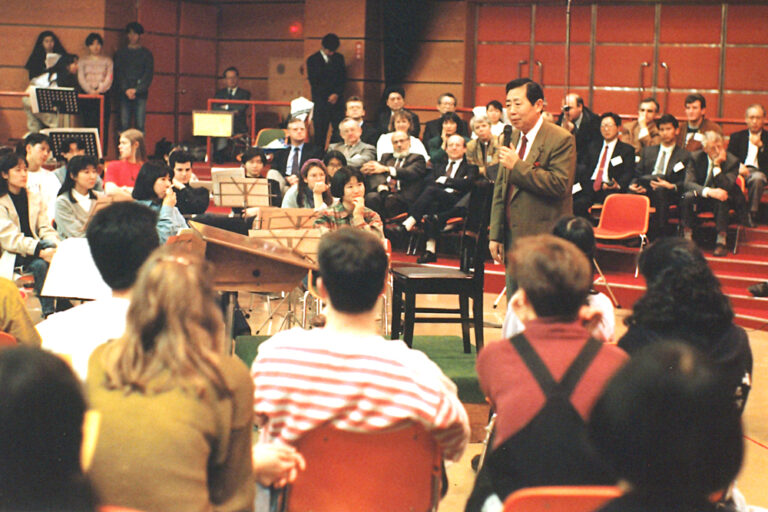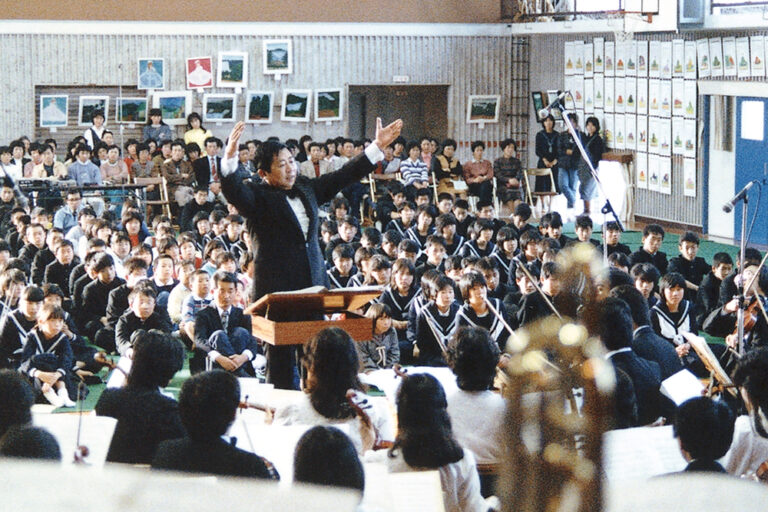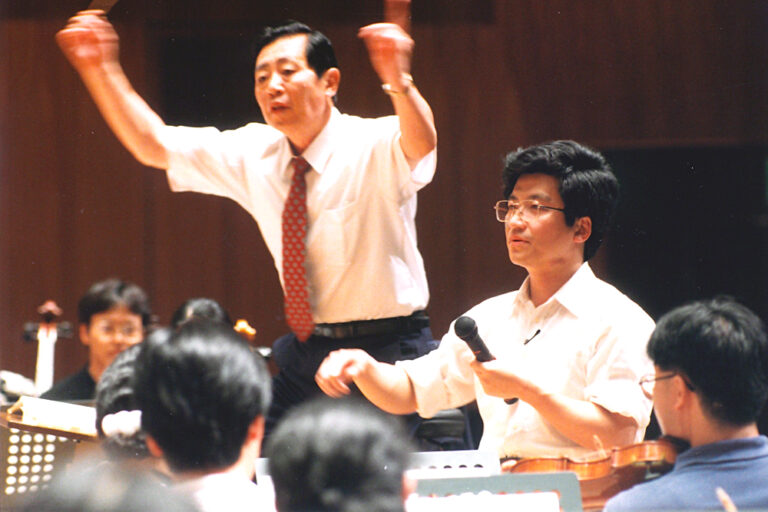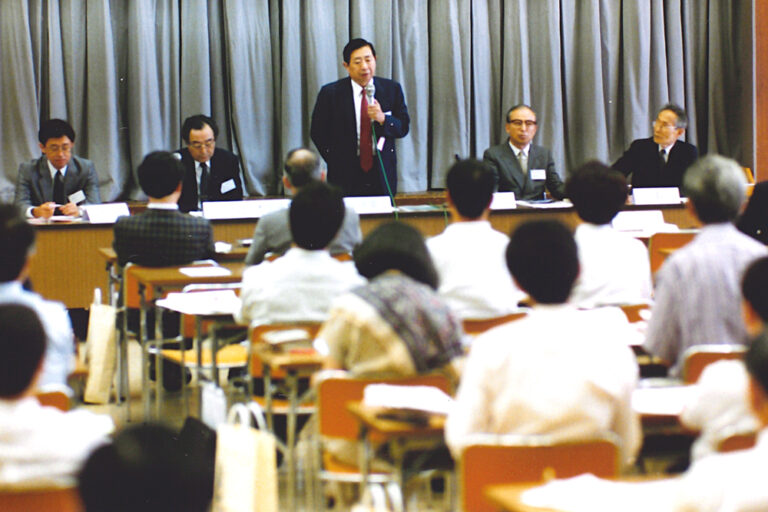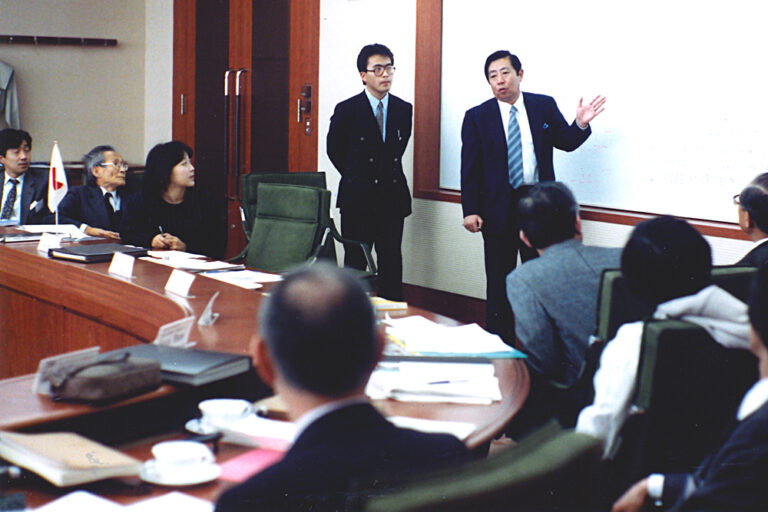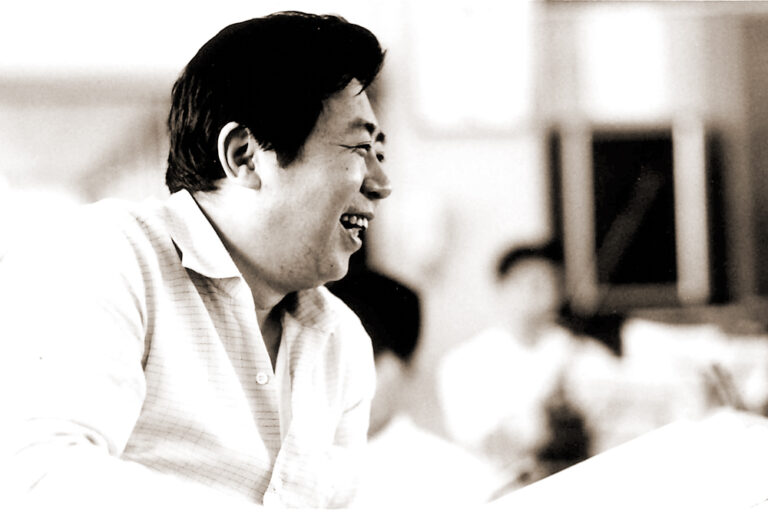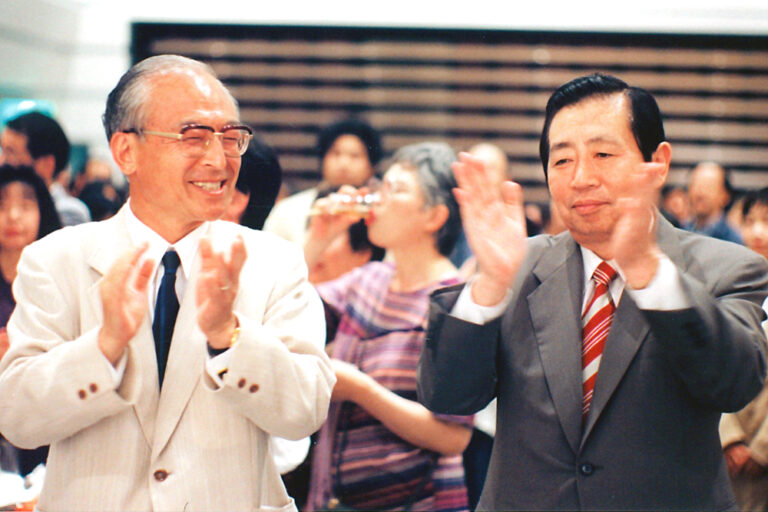<Epilogue> Last Message
“Now it is time for us to work on self-reflection and internal matters.”
This is the final episode of “Motoyasu Morishita’s Theory of Amateur Orchestra Activities,” which has been serialized for the past nine months. The end of the series is an excerpt from his last speech in his lifetime.
Morishita was hospitalized, but he maintained his condition and attended one of the events of JAO in January 2010. He gave a speech with all his might. His last message was, “Now that the performance level of amateur orchestras in Japan is high, where shall we head to now?”
We would like to deliver an excerpt of from the conclusion of “Last Message” of the man who lived with an amateur orchestra for 50 years.
“Maturity Period” with dramatic improvement in skills
The Federation of Japan Amateur Orchestra Corps. (JAO) was established in 1972 with 23 organizations.
Looking back, we experienced the pain of launching a new organization during the “foundation period,” we experienced gradual increase in number of member orchestras and seen improvement in skills during the “growth period,” and having a great improvement in playing skills, we are now in “maturity period” from late 1990s. We perform unbelievably grand scale music in the festivals today.
Meanwhile, I asked myself, “Where shall we head to now?”
I always aim for the next higher level and I asked myself a question. “Where is the line between the professional and amateur?” I do not know how much the word “amateur” made me suffer. People told me, “We envy amateur people because they can quit anytime they want to.” “After all, you are ‘amateur people’.” I could not stop from being vexed. How could they say such things? Then I came to a conclusion that we amateur orchestra shall improve the musical techniques and have own orchestra sound.
For people with “soul” of self-reflection and aspirations
Now it is time for us to work on self-reflection and internal matters. From now on, let us concentrate on how playing Mozart affects our bodies both physically and mentally, not just playing the music. If we are able to do this, the ensemble will come together and fit naturally.
We would like to achieve a higher level and there will be no boundary between professionals and amateurs. As you all know, the word “amateur” comes from the word “amore” (love) in Italian and we all have the “love” of music in the first place. Professional musicians are “artists” and amateurs are “artisans.” We shall aim to improve skills to play the piano or cello or any other instruments like artisans. I would say amateurs could become “artisans” who devote themselves to deepen the understanding of music and contributing to the original sound of the orchestra. I strongly hope that we will become artisan with a “soul” to reflect ourselves with ambitions to improve in every way.
Closing Remarks
We shall now move onto the next movement. I hope you will talk deeply about music with your friends and colleagues in your hometown. I truly pray for ensembles in your orchestras that bring beautiful harmony reverberating throughout from deep and high places.




